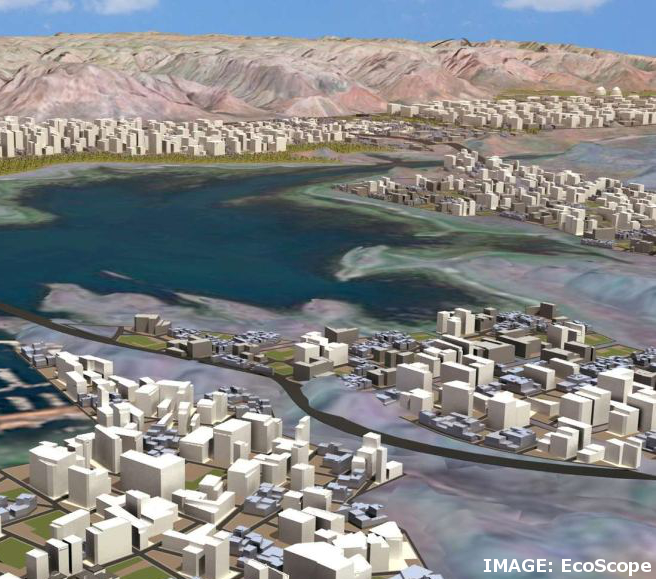Sight seen as centre for Northern revolution
 An architecture and design firm has put out plans for massive development in Australia's north, in a town where crocodiles outnumber humans 1,000 to one.
An architecture and design firm has put out plans for massive development in Australia's north, in a town where crocodiles outnumber humans 1,000 to one.
There is always talk of the need and benefits to attracting more people to the northern half of the country; reducing population density, improving environmental care, creating new jobs and expanding sustainable agriculture industries are just a few of the drawcards.
Now, architects and engineers at the company Ecoscape have earmarked Lake Argyle in the East Kimberley as a potential capital city for the future heart of the nation.
Lake Argyle is actually a dam created by the stemming of the Ord River in the nineteen-sixties.
It currently includes a population of 20,000 crocodiles and around a dozen humans on its banks.
But Ecoscape says Lake Argyle could become a northern capital capable of sustaining a population of 150,000 people.
Their plans include an international airport, clean energy supply, recycled water, integrated public transport and other ideas tailored to the needs of what could be Australia’s most isolated city.
Speaking to the ABC, Ecoscape environmental scientist David Kaesehagen said Lake Argyle is an ideal combination of the perfect opportunity and beautiful scenery.
“We started looking at... how you'd build a new, modern, sustainable city which looks at using modern technology and meets the challenges of particularly hot environments,” Kaesehagen said.
“[Lake Argyle has] industries around it, it’s got mining and agribusiness, it’s got a whole range of different industries which can attract and hold people, so the place itself has got such intrinsic beauty that that works to glue people to place.
“There are so many opportunities here, there are more than 70 islands here, you can imagine resorts on different islands, you can imagine Australians really enjoying themselves in this beautiful part of the country.
“Not many people get to experience it, and those that do ... find it breath-taking, so I can sort of see this place as a great site for a conurbation of some sort, imagine it.”









 Print
Print